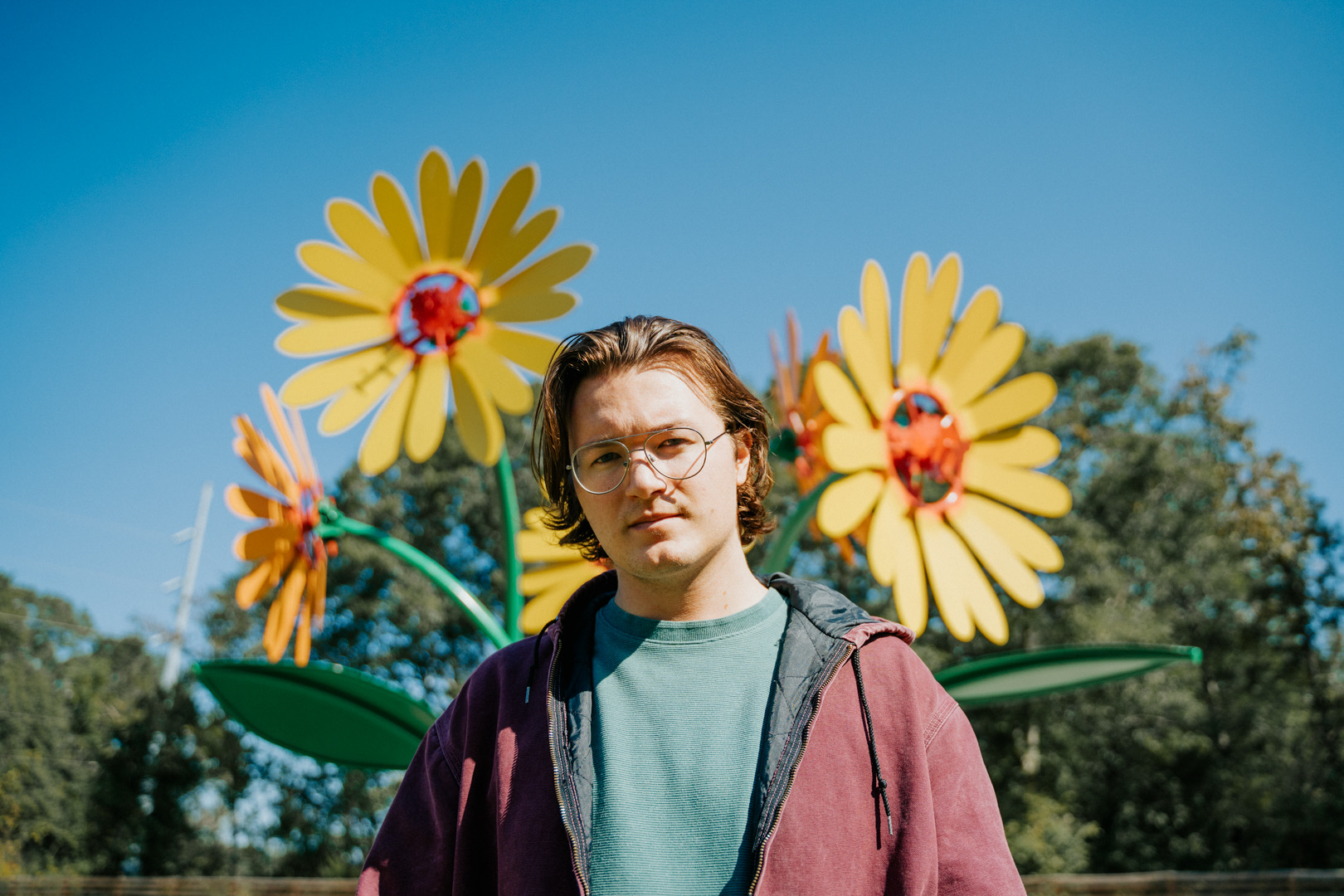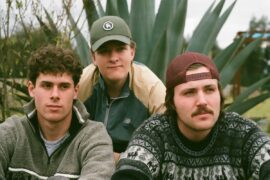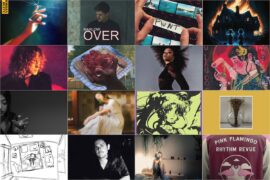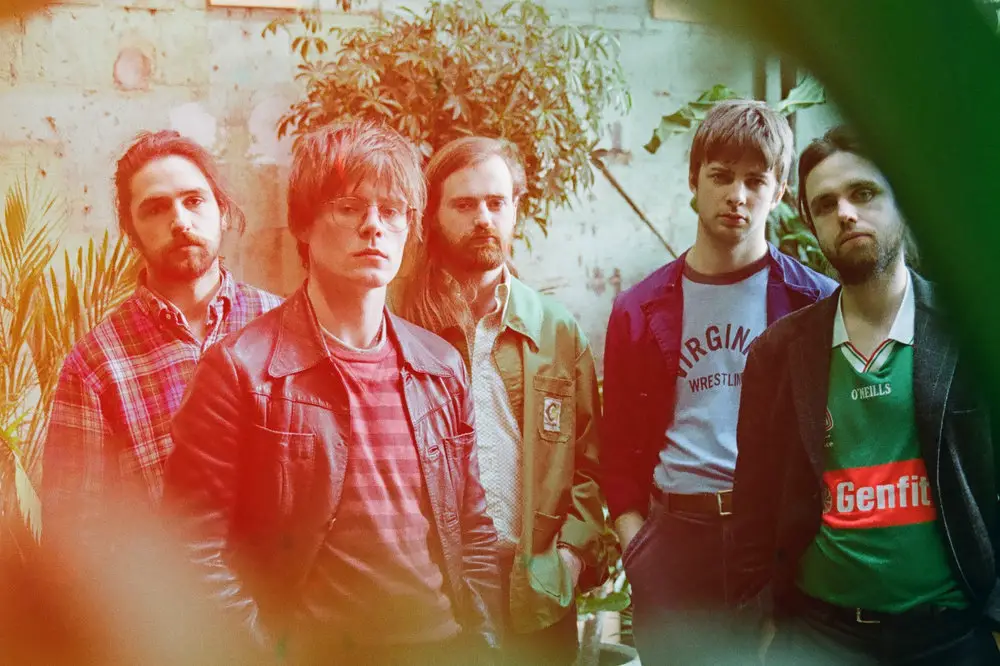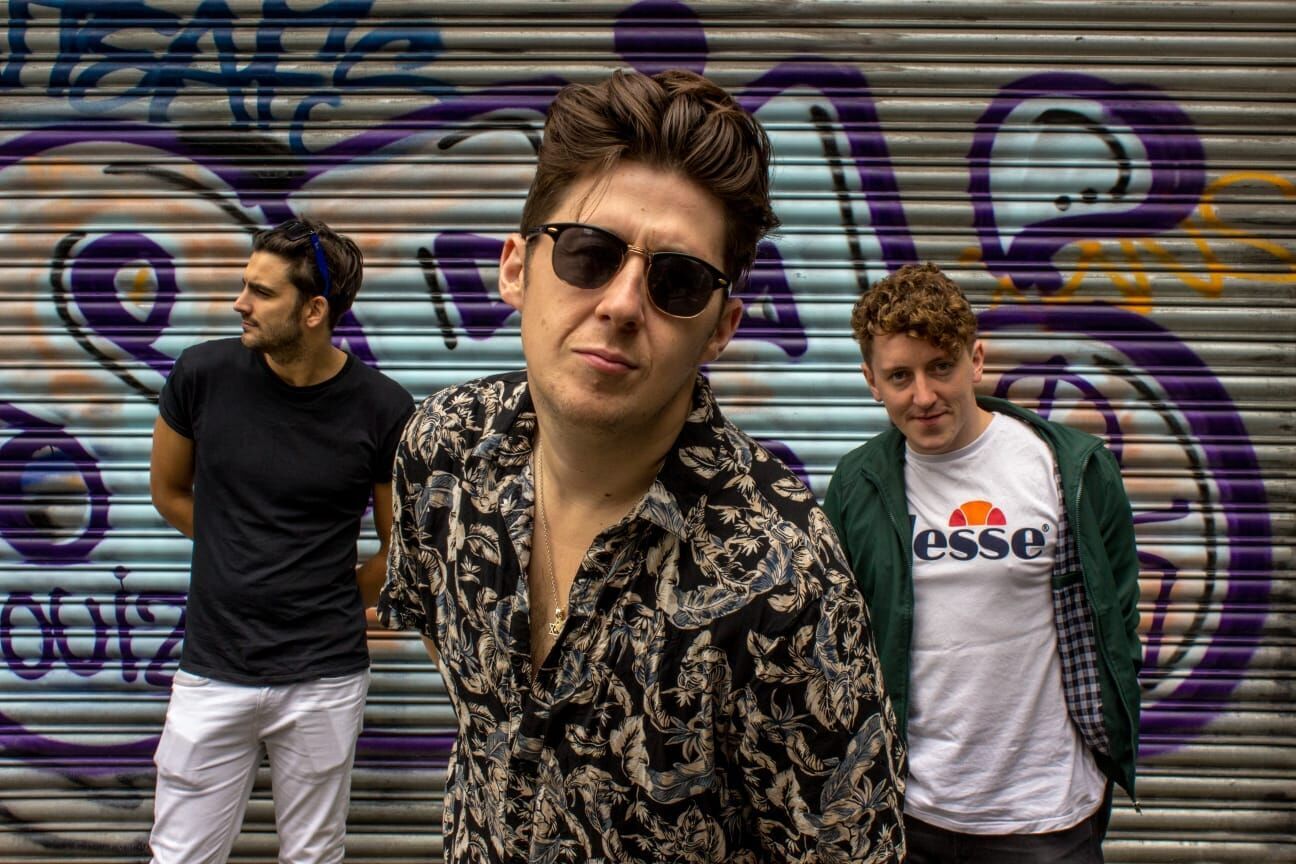Runnner’s Noah Weinman discusses his breathtaking debut album ‘like dying stars, we’re reaching out,’ a beautifully cathartic indie folk exploration of connection, communication, and the human condition.
for fans of Sufjan Stevens, Hovvdy, Skullcrusher, TOLEDO, Mount Eerie
‘like dying stars, we’re reaching out’ – Runnner
Whenever I’m making music I’m hoping to create some moment of connection between the listener and me. If people listen to the album and feel that bond, then I’ll have introduced myself as an artist the way I want to.
Noah Weinman has an uncanny knack for capturing and creating moments of intense intimacy.
Whether he’s behind the boards, producing for the likes of Helen Ballentine’s indie folk project Skullcrusher, or in front of the microphone for his own artist project Runnner, Weinman’s art has a deft and tender touch. He’s proved this time and again over the past five very long, very busy years, but nowhere does this talent shine as bright as it does on Runnner’s long-awaited debut album: Beautifully cathartic and breathtakingly warm, like dying stars, we’re reaching out explores connection, communication, and the human condition through a uniquely cinematic indie folk experience.
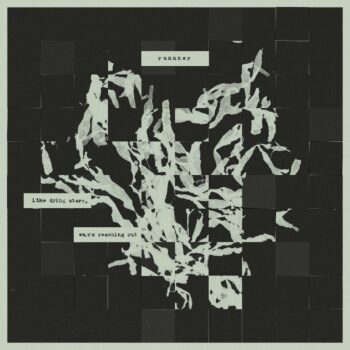
I don’t wanna live like this forever
But I’m still too scared to die
Unresolved in how to make it better
But I don’t know if I ever really tried
Buying dandruff shampoo at the Rite Aid
Am I making a positive change?
Fifteen pack for sixteen dollars
Plastic waves like corduroy
Neon lights beam through the water
Occupied in all this noise
I should remember my coat when it’s cold out
‘Cause I keep getting sick from the rain
I thought I would improve when I’m older
But I’m mostly just staying the same
– “raincoat,” Runnner
Released February 17, 2023 via Run For Cover Records, like dying stars, we’re reaching out is intimacy manifest in twelve soul-stirring songs, each one a hushed lullaby ready to lull us into a dreamlike reverie. It’s an incredible journey for the ears and mind alike, and one that faithfully captures the full scope, breadth, and depth of Runnner’s unique sonic imprint.
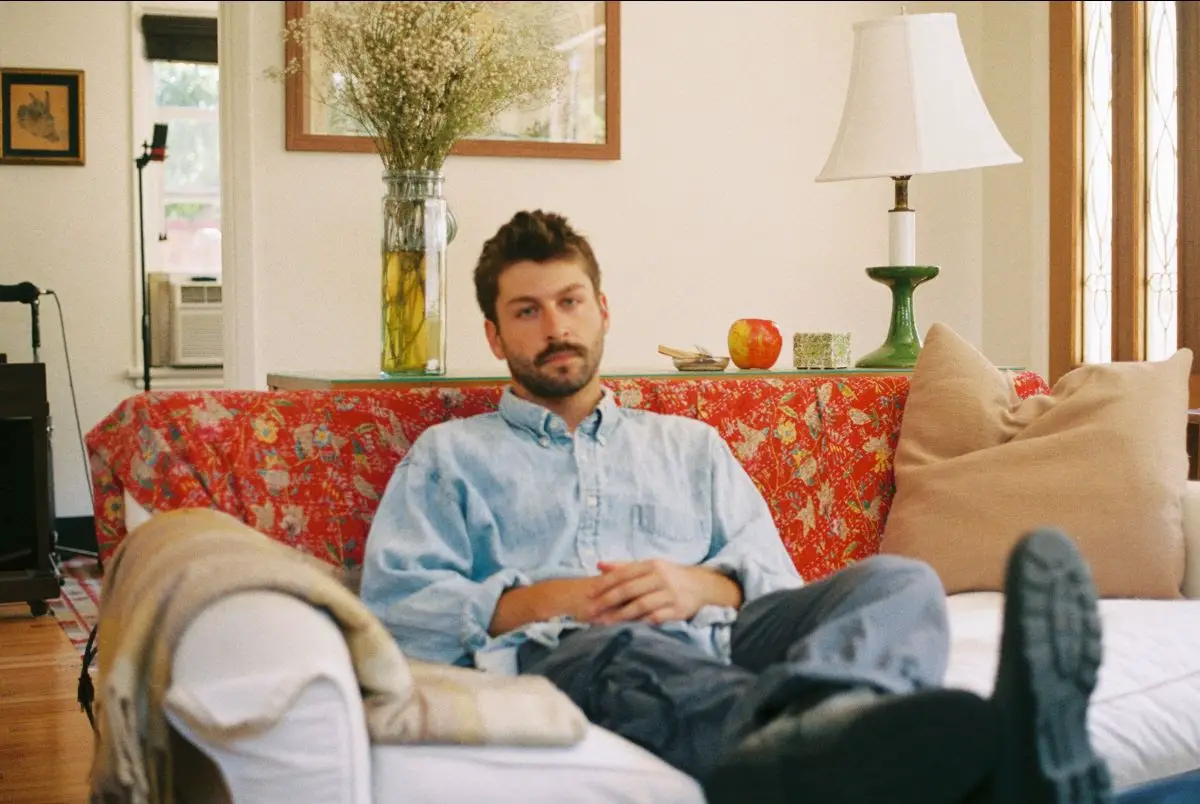
It’s also a long time coming for Noah Weinman’s solo endeavor. Following two EPs (2019’s Fan On and 2020’s One of One) and 2021’s collection album Always Repeating, as well as a slew of demos and standalone singles (including 2022’s Atwood Editor’s Pick “Vines to Make It all Worth It”), Weinman announced his debut album in late 2022 and spent the ensuing months teasing out tracks like “i only sing about food,” “bike again,” “nye,” and “runnning in place at the edge of the map” – the four of which alone run the gamut from soft and subtle to epic and expansive (which, it should be noted, are not exclusive states of being; these words merely serve to help express the vast worlds of sound and texture that exist within one album).
The fact that these songs added up to a full-length LP, as opposed to another shorter extended player, is something of a happy accident. “I feel like I’m always finishing a song before I really feel like I finish the thought, if that makes sense,” Weinman tells Atwood Magazine. “So the longer the collection is, the more enjoyment I get out of continuing to explore a certain theme.”
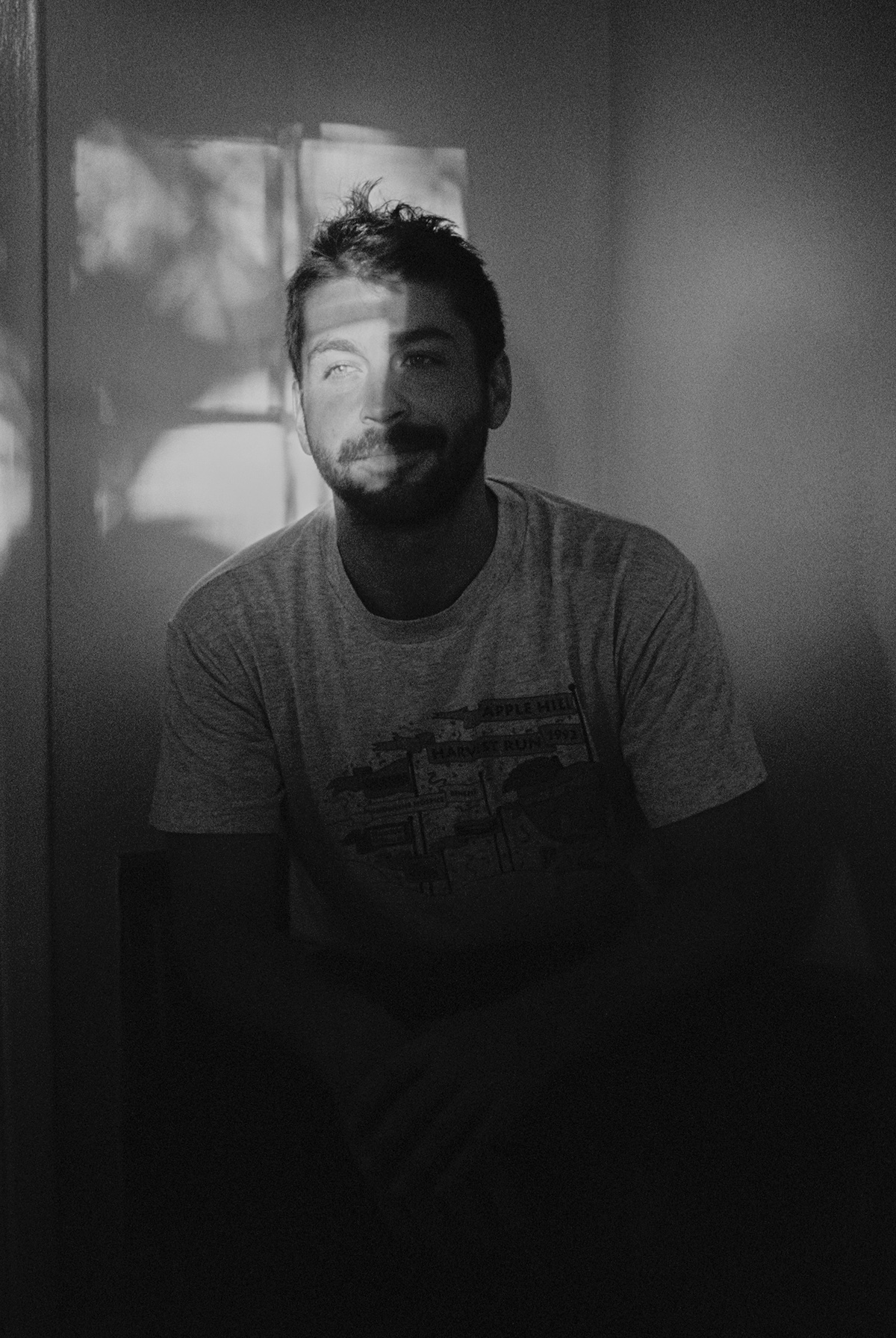
“So much of writing Runnner songs is me putting down all the things I wished I was saying in my life – and these songs all ring true for that,” he adds. “I was trying to think about all the different modes of communication we use: Talk, text, email, body language, etc., and how I wanted to pair those with all the different ways we hear sounds so I tried to embrace as many different ways of recording audio to match that: Studio microphones, iPhone microphone, cassette recorded, internal laptop microphone. That kind of intentional pairing was new for me and probably only possible as I’ve learned more about recording.”
That Weinman is enjoying himself is abundantly clear throughout this album’s 34-minute run. From the graceful, carefully-sculpted wall of sound surrounding album opener “plexiglass” to the stunning performance and visceral production on tracks like “raincoat,” “chess with friends,” “reach,” and “noah needs a haircut,” to the showstopping, finely finessed finale “a map for your birthday,” like dying stars, we’re reaching out is an endlessly enchanting, immersive, and inspiring listening experience.
“I hope that it feels intimate,” he says. “Whenever I’m making music I’m hoping to create some moment of connection between the listener and me, and if people listen to the album and feel that bond, then I’ll have introduced myself as an artist the way I want to.”
Runnner may have made his mark at the top of the year, but he still has many more tracks and tricks up his sleeve. The artist returned this May with the golden-hued song “bluejay,” a gentle giant of lo-fi wonder ready to soundtrack our summer days and night ahead. His first post-album single, “bluejay” comes from the same sessions as like dying stars, we’re reaching out, and is yet another special addition to Runnner’s catalog of comforting, cozy indie folk intimacy.
Atwood Magazine recently caught up with Noah Weinman to discuss his debut album, his artist name, and what has quickly become his signature sound. Dive into all things Runnner in our intimate interview below, and listen to like dying stars, we’re reaching out and “bluejay,” both out now via Run For Cover Records.
— —
:: stream/purchase Runnner here ::
Stream: ‘bluejay’ – Runnner
A CONVERSATION WITH RUNNNER
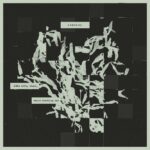
Atwood Magazine: Noah, can you share a little about the story behind the Runnner moniker? How did you come up with this artist name?
Runnner: Truthfully not really a story here. I always say “whatever you’re imagining is probably more interesting,” so I’m gonna let people continue to imagine.
Point taken. How did the deliberate 3-n misspelling come about? It’s absolutely striking – the bane of my computer’s autocorrect, but it’s instantly memorable.
Runnner: Runner.bandcamp.com was taken, so I threw in the extra N without really thinking about it. It is also the bane of so many things in my life, but has become my cross to bear.
You released two EPs and one compilation before making this album. How does this record differ from your EPs, and how did you know it was time for a full-length LP?
Runnner: The process was pretty similar to how I made both Fan On and One of One, in that I had a bunch of demos kicking around and I tried to create little groups of them based on themes while also making sure there was stylistic variation among them. Usually this accounts for like 50% of the collection and then I’ll write a few more with this theme in mind. I feel like I’m always finishing a song before I really feel like I finish the thought, if that makes sense. So the longer the collection is the more enjoyment I get out of continuing to explore a certain theme. I’m not sure if I consciously thought “No more EP’s, time for an LP” at any point. It was kind of just what was on the table from the label and I was excited to do something longer.
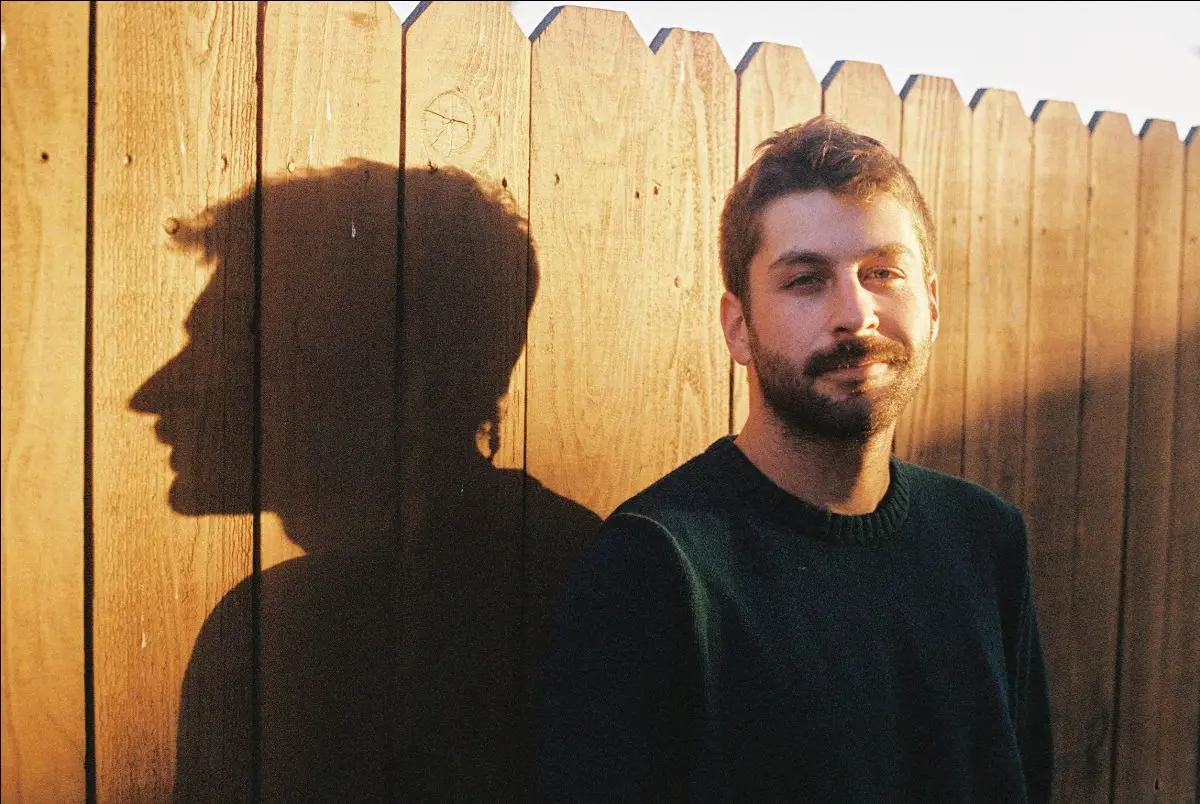
What was your vision going into this record? Did that change over the course of recording this?
Runnner: I think the vision stayed pretty much the same from start to finish. So much of writing Runnner songs is me putting down all the things I wished I was saying in my life – and these songs all ring true for that. I think the way I recorded songs changed over the course though as I tried to adhere more to the vision.
For example, I was trying to think about all the different modes of communication we use (this now feels a bit silly to enumerate, but bear with me): Talk, text, email, body language, etc., and how I wanted to pair those with all the different ways we hear sounds so I tried to embrace as many different ways of recording audio to match that: Studio microphones, iPhone microphone, cassette recorded, internal laptop microphone. That kind of intentional pairing was new for me and probably only possible as I’ve learned more about recording, whereas previous Runnner songs I’ve just felt lucky to have captured anything.
I really love the indie folk sound you’ve honed on this record. Who, if anyone, were you inspired by in developing this sound, and can you describe what you hope it evokes?
Runnner: I was late to the game on this, but someone turned me onto the album Lost and Safe by the Books just before I started recording this album and it really changed things for me. To have this sense of someone crafting a record out of what seemed like whatever they had lying around was really inspiring and I think in a way is what I’ve been trying to do with this project the whole time. But to hear it done so well on that album inspired me to dig deeper and see how strange and unique I could try to get certain things to sound.
For me, this album is one massive cathartic release. What is the songwriting process like for you – do you feel like a piece of you is left in these songs? Once they're out in the world, can you move on from that moment?
Runnner: I sometimes wish that the moments would leave but they don’t, and I think I even find myself turning to some of those same moments for future songs, but maybe seeing them from a different angle. Once the song is out in the world I think the only piece that’s gone is the song itself, which seems obvious and is definitely cathartic, but if anything I think the moment stays and sometimes I’ll forget that I even wrote a song about that moment.
So, why the title “Like Dying Stars, We're Reaching Out”?
Runnner: It’s taken originally from a song I wrote in college (probably like 2016). To be completely honest I don’t remember exactly what I meant by it at the time, but when I remembered it years later I interpreted it as something about the attempts of connection, rather than the products, like attempting to get close to something or someone, but not necessarily always in the right way/at the right time, but there’s something in the effort. Reinterpreting it for myself down the line also felt like an example of that, like somehow I felt this then even if I didn’t realize it or couldn’t put it into language that made sense. It felt like a nice connection to have made with myself.
How do you feel Like Dying Stars, We're Reaching Out introduces you and captures your artistry?
Runnner: I hope that it feels intimate. Whenever I’m making music I’m hoping to create some moment of connection between the listener and me, and if people listen to the album and feel that bond, then I’ll have introduced myself as an artist the way I want to.
What inspired you to open with the song “plexiglass,” and how do you feel it sets the tone for the record?
Runnner: As I got deeper into the album I started to think more cinematically about how I wanted the arc to look. I remember I was watching Station Eleven and Adventure Time and thinking about these strangely upbeat post-apocalyptic stories, and how this album wanted to do that in some ways. Like the world was starting to open back up again but that also meant starting to reckon with a lot of the personal stuff I had shelved during the pandemic. I don’t know exactly but there’s some wasteland/wreckage metaphor here that I’m not going to do justice to by trying to explain it anymore. I already had the song written with the vocal melody and that piano line, but the production was all built around that tremolo saxophone thing I made. Apocalyptic deserts make me think of tremolo, so it all kind of just felt like the establishing shot of the record (the music video kind of attempts this in a more obvious way too).
I noticed you mimicked the triple-n thing on “runnning in place at the edge of the map.” How did this song come to be?
Runnner: I write a lot of songs with the title first, and this one was actually a few songs. I liked the image it conjured and it felt like an important piece of the album’s story, but it took me a lot of tries to get the version that’s actually on the record. I wanted a long, dramatic song to really solidify the concept and that’s way too much pressure to put on a song you haven’t written yet, but I went for it anyway.

Do you have any definitive favorites or personal highlights off this record?
Runnner: “Reach” and “Plexiglass” were really fun to record because I felt like I had these blank production canvasses in parts of the song to really get creative and push myself beyond what I’ve made in the past I think same goes for “Scabpicker” and “String.”
As a lyrically forward artist, do you have any favorite lyrics in these songs?
Runnner: My childhood dog died right before I started recording the album. He was 18! And there’s an early Runnner song on bandcamp I wrote for him when he was really starting to get old (but then hung in there for so much longer). Anyway, I liked that I could reference him on more time on “Runnning in Place at the Edge of the Map.”
“Was I better then,
when I sang about my dog with my friends?
Can I understand
what’s curving away from my hands?”
What do you hope listeners take away from Like Dying Stars, We're Reaching Out? What have you taken away from creating it and now putting it out?
Runnner: I guess personally I’ve been trying to embrace the imperfections of communication (and creation in general), and parts of this record feel aspirational towards that. I’m not sure if I want my listeners to take away something so prescriptive, but if they do I guess I would want it to be something similar to that.
— —
:: stream/purchase Runnner here ::
— — — —

Connect to Runnner on
Facebook, Twitter, Instagram
Discover new music on Atwood Magazine
© Seannie Bryan
:: Stream Runnner ::

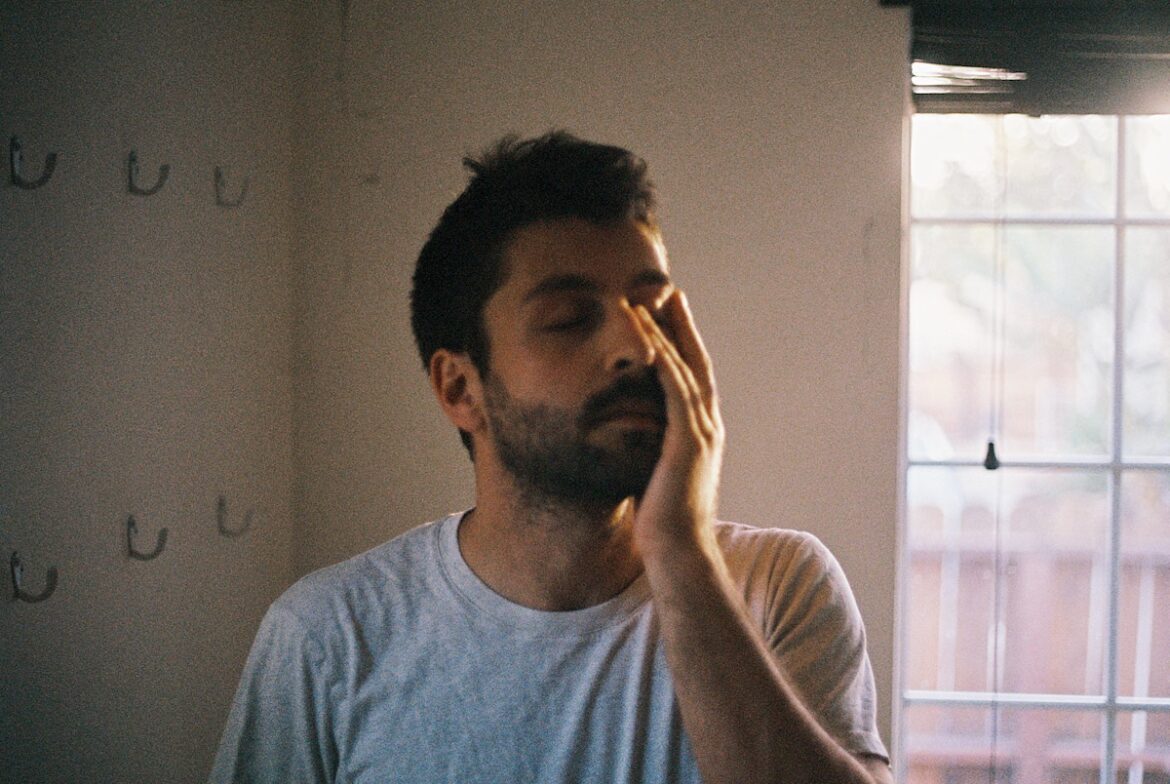
 © Seannie Bryan
© Seannie Bryan